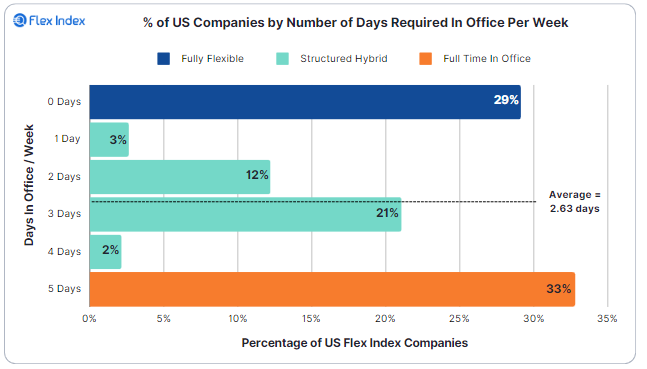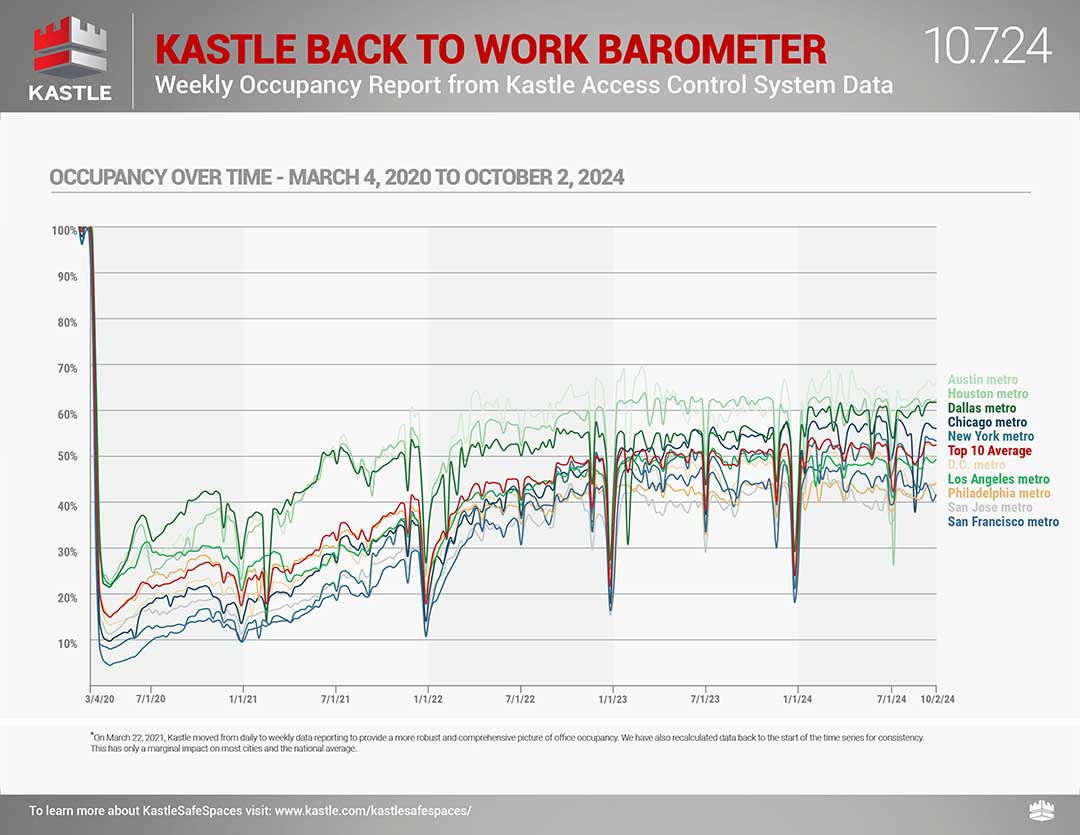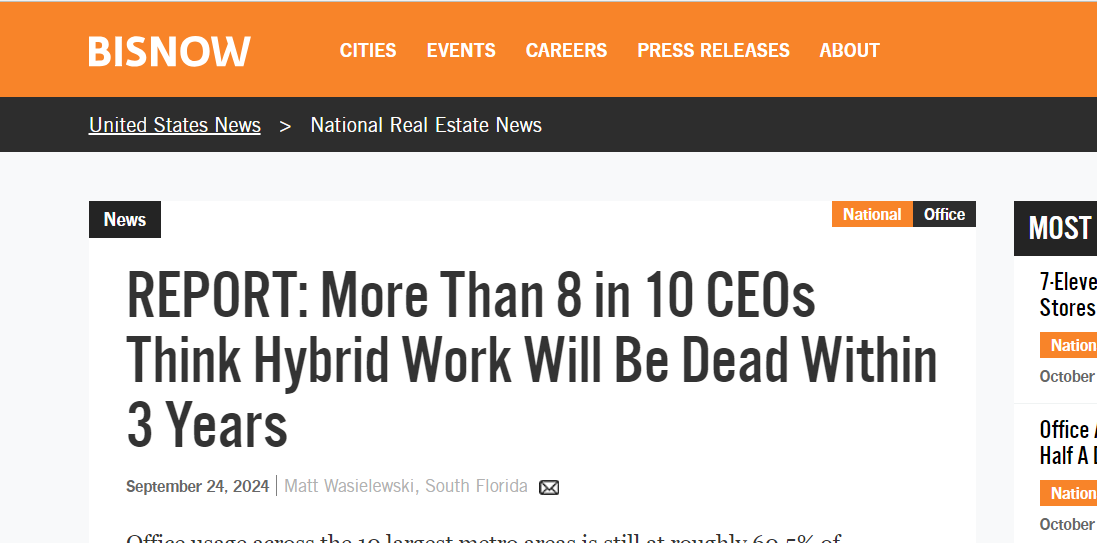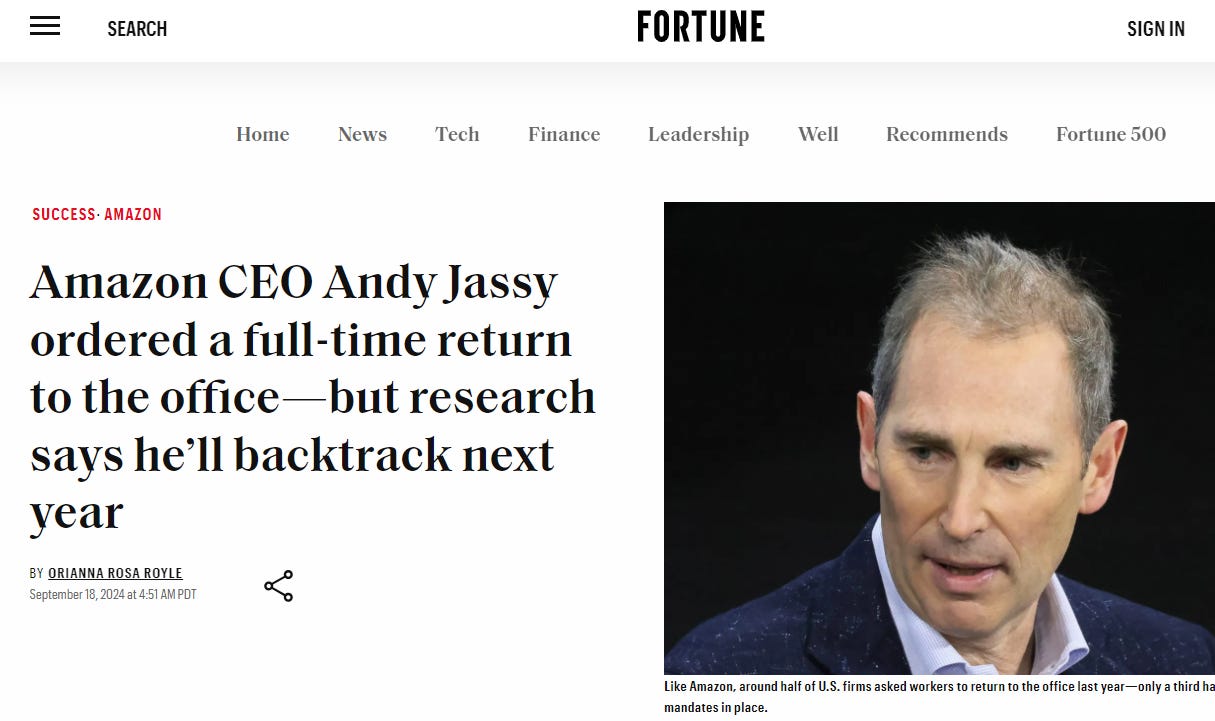You would think it's been decided.
The work-from-home (WFH) x return-to-office (RTO) debate, nearly 5 years past its infancy, should have been put to rest long ago.
Look at the data, and the winner is clear. I first made the case nearly two years ago:
Today, there is no denying it: hybrid has won.
The average American works from office 2.63 days per week. Less than a third of American companies still require full-time office attendance, and when you exclude services businesses like restaurants, hospitality, and education, full-time office attendance falls to <15% of companies.

Most remarkably, these numbers have been relatively flat for more than two years now (in the words of our advisor Nick Bloom, a leading economist and researcher on the topic of WFH, "flat as a pancake").
This is true for every major metro: look at office key card swipes, and the only real blips in the data are holidays like Christmas and July 4.

But ask an executive of your choosing what they think their office norm will look like a year from now and there is a very good chance they will describe a different reality.
How can you square the data with headlines like these?
At this point there is no going back.
There’s a real reason office usage has regressed toward the hybrid mean:
Employees greatly value workplace flexibility, as much as an 8% pay raise according to data from Bloom. Commuting sucks, and the cat’s out of the bag.
For a benefit valued this greatly - roughly equivalent to healthcare as a percent of salary - no single employer has the leverage to change an entire system. A controlled study from Bloom on Trip.com employees showed that employee quit rates increased 25-30% for those required to be in office 5 days a week versus 2-3.
For each CEO calling back their employees full time, there is another more than happy to absorb their excess talent.
In fact, this is just what happened with Amazon a few weeks ago. CEO Andy Jassy announced a full time return to office. Neighboring Seattle tech giant Microsoft quickly reassured its employees they don’t need to worry about losing their flex work perks.
At a panel event we hosted last week, Bloom described Jassy’s announcement as a “back-door layoff.” Applying the results from the Trip.com study, Amazon can expect a 5-10% exodus of bottom-talent employees as a result of the announcement.
At this point in the RTO saga, Jassy must know full well what he’s doing. No other major tech company has successfully pulled employees back to the office, and the data on hybrid is clear as day.
Brilliantly, Jassy is exploiting a massive disconnect between the reality of the RTO situation and the discourse.
Two behaviors are enabling this disconnect.
First, many business leaders feel emotional about this subject, in particular those with more traditional, old school leadership styles (yes, largely older white men I'm talking about).
Many were brought up in their careers in environments where physical proximity was the route to trust with your boss. "First one in, last one out" was the maxim for hard work and the fastest path up the corporate ladder.
What makes an insecure executive feel better about their job? Walking into a bustling and lively office. Of course, we wouldn't want to mistake activity for progress, but butts in seats has got to stand for something, right?
Emotions cloud objectivity, and when you're surrounded by friends all feeling the same things, it's easy to think you're right.
The second is the media's portrayal of the conversation.
The battle between work from home and return to office - the fight between employees and their bosses - is a classic David and Goliath headline-worthy saga.
As Nick put it at our panel event last week:
“When you write a story saying ‘Zoom returns to the office’, you can imagine people click, click, click like crazy!
But when you write one saying ‘Lazard National Bank announces they’ll work from home 3 days per week’, no one pays any attention.”
Headlines are catchy, and the compound effect of these two factors is greater than the sum.









This is great, and so true. I use the term 'old white men mentality' and a way to capture the essence of this type of leadership and mentality in business and society. And it doesn't mean that everyone is old and white, but everyone gets it when I say it.
Excellent piece. Thanks Rafi!